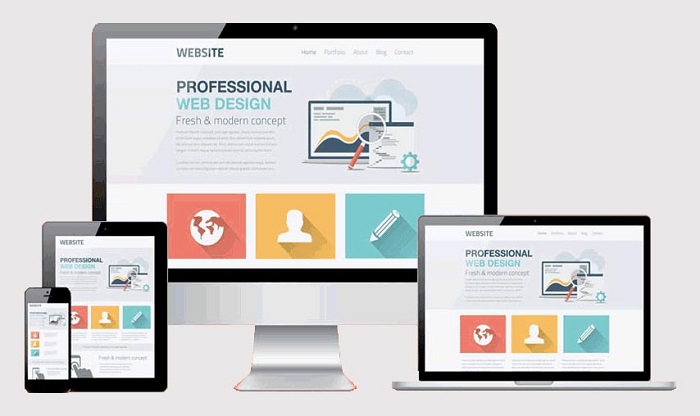
How to Promote Your Website Online Effectively
When it comes to online marketing, understanding the fundamental principles and strategies is essential for promoting your website effectively. This guide aims to provide you with a comprehensive overview of internet marketing techniques that will help you attract and retain visitors to your website. From understanding what marketing is to utilizing specific strategies like email marketing, this article will equip you with the necessary knowledge to enhance your online presence.
What is Marketing?
Marketing is the process of creating, communicating, and delivering offerings that have value for customers, clients, partners, and society at large. In the context of internet marketing, it involves a range of strategies and tactics aimed at promoting a website and its content to attract and engage an online audience. Effective marketing requires a deep understanding of the target audience, clear messaging, and the use of various online channels to reach potential customers.
In essence, marketing is about identifying and meeting human and social needs in a profitable manner. It involves a blend of art and science, requiring creativity, analytical skills, and a strategic approach. Whether you are using SEO, content marketing, social media, or email marketing, the goal is to drive traffic to your website, convert visitors into customers, and build long-term relationships with your audience.
How It Works and Why It Is Used
Internet marketing works by leveraging various online channels to reach potential customers where they spend their time. This includes search engines, social media platforms, email, and other websites. By optimizing your website for search engines (SEO), you can improve its visibility in search results, making it easier for potential customers to find you. Content marketing involves creating valuable and relevant content to attract and engage your target audience, while social media marketing leverages platforms like Facebook, Twitter, and Instagram to connect with users and promote your brand.
The primary reason for using internet marketing is its effectiveness in reaching a large audience at a relatively low cost. Unlike traditional marketing methods, online marketing allows for precise targeting, real-time data analysis, and the ability to measure the success of your campaigns. This makes it possible to continuously optimize your strategies and achieve better results over time. Additionally, internet marketing offers the flexibility to reach customers globally, providing opportunities for businesses to expand their reach and grow their brand.
About Email Marketing
Email marketing is a powerful tool for promoting your website and nurturing relationships with your audience. It involves sending targeted emails to your subscribers with the goal of driving traffic to your website, promoting products or services, and building customer loyalty. Here are some key strategies for effective email marketing:
First, it’s important to build a quality email list. This can be done by offering valuable content, incentives, or discounts in exchange for visitors’ email addresses. Once you have a list of subscribers, segment them based on their interests and behaviors to deliver personalized content that resonates with each group.
Second, focus on creating compelling email content. Your emails should be well-designed, easy to read, and provide clear value to your subscribers. Use attention-grabbing subject lines, personalized greetings, and relevant content to engage your audience. Additionally, include a clear call-to-action (CTA) that directs readers to your website or a specific landing page.
Lastly, analyze and optimize your email campaigns. Use metrics such as open rates, click-through rates, and conversion rates to assess the performance of your emails. Experiment with different subject lines, content formats, and sending times to determine what works best for your audience. Continuous optimization will help you improve your email marketing efforts and achieve better results.
Leveraging Social Media Marketing
Social media marketing is another effective strategy for promoting your website. By creating and sharing content on platforms like Facebook, Twitter, LinkedIn, and Instagram, you can reach a wider audience and drive traffic to your website. Here are some tips for leveraging social media marketing:
- Choose the right platforms: Identify the social media platforms that your target audience uses the most. Focus your efforts on these platforms to maximize your reach and engagement.
- Create engaging content: Share a variety of content, including blog posts, images, videos, and infographics, to keep your audience engaged. Use hashtags, mentions, and tags to increase the visibility of your posts.
- Interact with your audience: Respond to comments, messages, and mentions promptly. Engage with your followers by asking questions, running polls, and encouraging user-generated content.
- Monitor and analyze performance: Use social media analytics tools to track the performance of your posts. Analyze metrics such as likes, shares, comments, and click-through rates to understand what content resonates with your audience.

Search Engine Optimization (SEO)
Search engine optimization (SEO) is a critical component of internet marketing. By optimizing your website for search engines, you can improve its visibility in search results and attract more organic traffic. Here are some essential SEO strategies:
- Keyword research: Identify the keywords and phrases that your target audience is searching for. Use tools like Google Keyword Planner to find relevant keywords with high search volume and low competition.
- On-page optimization: Optimize your website’s content, meta tags, headings, and images for your target keywords. Ensure that your website is mobile-friendly and has a fast loading speed.
- Off-page optimization: Build high-quality backlinks from reputable websites to improve your website’s authority and search engine rankings. Participate in guest blogging, social bookmarking, and influencer outreach to generate backlinks.
- Content creation: Regularly publish high-quality, relevant, and valuable content that addresses the needs and interests of your audience. Use a mix of blog posts, articles, videos, and infographics to keep your content fresh and engaging.
Pay-Per-Click (PPC) Advertising
Pay-per-click (PPC) advertising is a cost-effective way to drive targeted traffic to your website. With PPC, you only pay when someone clicks on your ad, making it a budget-friendly option for businesses of all sizes. Here are some tips for successful PPC advertising:
- Choose the right platform: Google Ads and Bing Ads are popular PPC platforms that offer extensive reach and targeting options. Social media platforms like Facebook, Instagram, and LinkedIn also offer PPC advertising.
- Create compelling ads: Write clear and concise ad copy that highlights the benefits of your product or service. Use eye-catching images or videos to capture the attention of your audience.
- Target your audience: Use demographic, geographic, and behavioral targeting to reach your ideal audience. Experiment with different targeting options to find what works best for your campaigns.
- Monitor and optimize: Track the performance of your PPC campaigns using metrics such as click-through rates, conversion rates, and return on ad spend. Adjust your bids, keywords, and ad copy to improve the effectiveness of your campaigns.
Promoting your website online requires a strategic approach and the use of various internet marketing techniques. By understanding what marketing is, how it works, and utilizing strategies like email marketing, social media marketing, SEO, and PPC advertising, you can effectively promote your website and achieve your business goals. Remember to continuously analyze and optimize your efforts to stay ahead of the competition and provide value to your audience.

